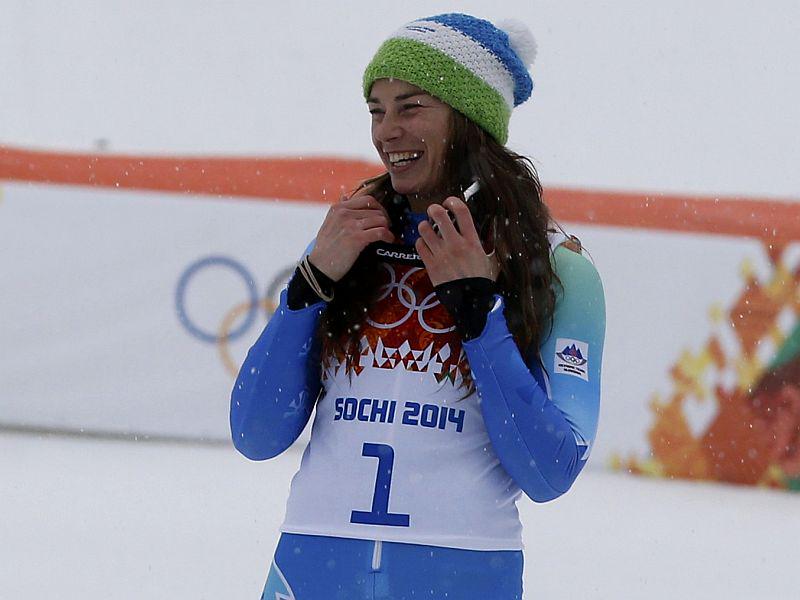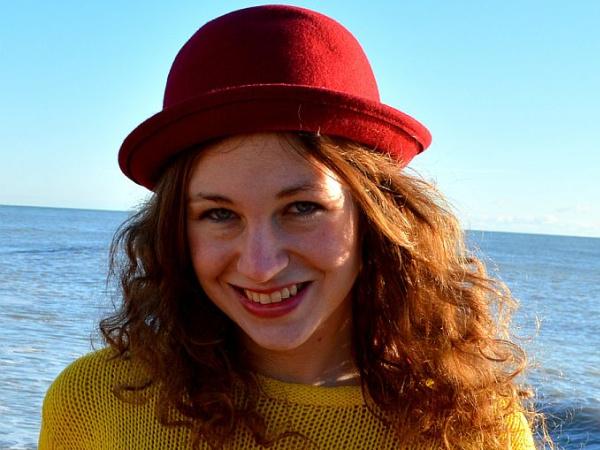

Very little conversations with the foreigners omit the sports topics – not just because sport is something universal with a global appeal, but especially because sport is an area Slovenians can be really proud of. The recent success at the Sochi Olympics certainly proves so.
After Slovenia had won its fourth medal at the Sochi Olympics, one of my professors started his lecture by saying: “Do you know what the most current issue in global sport is? Slovenia doing a fantastic work at the Olympics!” There was a big number of articles in the foreign media about a big success of a small country. The social media were flooded by Brian Quinn’s article “And the Winner of the Sochi Olympic Games is…Slovenia?” (http://www.valuepenguin.com/2014/02/sochi-winter-olympics-winners). It is our national characteristic that we get extremely excited when mentioned in the foreign media, but at least such articles shed much better light on “a small country with a big heart” than the news about the corrupt politicians and bad economic and financial situation. Such compliments should not serve as the opium for the masses – we still have to get back to reality and think about how to improve political and economic situation in the country. However, the above-mentioned examples teach us one thing: sport is a great tool for diplomacy.
While traditional diplomacy is conducted mainly by the state actors, sports diplomacy as a form of public diplomacy extends well beyond such an understanding and includes a variety of state and non-state actors. Sports diplomacy can be used to improve and refine the image of a country, to boost peace and promote friendly relations among nations, to promote trade and tourism, to encourage international development and to integrate minorities. Of course, sport can play a negative role in international relations as well, such as to encourage nationalism, racism, conflicts and even accelerate a conflict into war – the most famous example is so called Soccer War between El Salvador and Honduras in 1969. However, I want to focus on the positive aspects of sport which can contribute to a state’s soft power and therefore to its diplomatic efforts.
There are many ways of conducting so-called sports diplomacy. The most obvious one is participation of athletes at the international sports events and consequent ‘swaggering’ on the basis of their victories. A tool of sports diplomacy that is probably the most effective in enabling a state to achieve its foreign policy goals is hosting sports mega events. The master in such an example of sports diplomacy is South Africa, which has hosted 20 international sports events since 1994. More recently we can also see Russia’s efforts to be the host of globally popular sports events, such as the Olympics, Formula 1 race, and the FIFA World Cup. Hosting mega-events can significantly reposition a country in the international community and change the perceptions about it abroad. However, at the same time it can also bring a number of other important issues in that country to the surface and onto the global stage (in front of TV screens and people’s daily conversations) – i.e. environmental impacts of hosting such mega-events or workers’ rights. Moreover, all the international sports events present not only a chance for the athletes and fans from different countries to come together, but also a platform for “high politics” – relaxing atmosphere, sport spirit and informal environment offer a great setting for diplomatic meetings.
Slovenia is active more or less in all the above-mentioned diplomatic efforts connected to sport. Our Olympians did an amazing job at the Sochi Olympics – their good performances carried the name of Slovenia around the world and brought it into international public discourse. Although we like to say we are a skiing nation, we can brag about our successes in non-winter sports as well – just remember the participation at the 2002 and 2010 FIFA World Cups, successes at the European basketball championships (4. place in 2009, 6. place in 2006 etc.), 2. place at the 2004 European and 4. place at the 2013 World Handball Championships etc. At the majority of the tournaments or international matches, the athletes and teams are supported by our politicians. I will never forget how the former president Dr Danilo Türk cheered “Champions, champions!” after defeating Russia in a World Cup qualifying play-off match in Maribor in November 2009; or how enthusiastically the president Mr Borut Pahor waved the Slovenian flag at the Eurobasket last year. Such acts not only show state’s support to athletes, but also send an important message and picture abroad: politicians are “cool”, sport is important to the country, and probably most importantly – Slovenia is united and therefore strong.
Lastly, Slovenia successfully hosted Eurobasket 2013 which contributed to its international visibility. The tournament was advertised by some of the Slovenian embassies, by the Ministry of Foreign Affairs, and at the Bled Strategic Forum, the highest diplomatic and business conference in Slovenia. Unfortunately, the financial and infrastructural aspects often prevail in decisions about hosting the events – an example is the 2013 Universiade, which was supposed to take place in Slovenia, but was cancelled after the Slovenian government said that there were not enough budgetary resources to hold the event. I am not proposing that Slovenia should be hosting such large-scale events in the times when people, especially the youth, are facing high unemployment rates and when there is not enough money for social services; however, regarding the long-term plans, our government(s) should keep in mind that hosting sports events brings investments, creates temporary jobs and markets the country to the world.
In the times when we are still a bit confused about our role in international relations and the ways to market our beautiful country and attract tourists, our athletes are playing a key role in representational activities of the country. I am aware that my passion for sport makes me somewhat biased, but I think they deserve to be called the best Slovenian ambassadors. However, it has to be noted that the current Slovenian sports diplomacy is spontaneous rather than explicitly planned. Slovenia is still waiting for the new foreign policy strategy to be made/adopted ‒ the old one dates back to 1999 and its goals (mainly the membership in the EU and NATO) were already achieved. Allegedly, the new one will focus on economic diplomacy. Both economic diplomacy and broader foreign policy goals can be facilitated by sports diplomacy. This is not to say that sport should be a priority in our foreign policy; however, it can serve as a good supporting tool that can bring investments in the country, present a nice picture of Slovenia, increase international awareness and knowledge about our small country, help with promoting the national brand “I Feel Slovenia” and offer politicians and diplomats a neutral environment to discuss serious issues.
I do not think sport will be specifically referred to in the new foreign policy strategy; however, I strongly suggest the government to consider the role of sports diplomacy, possibly link it to general foreign policy goals and priorities and possibly even propose a separate strategy or a working paper for it. After all, we have great conditions and capabilities for it. In order to have effective and internationally recognised sports diplomacy, more cooperation between different ministries (especially the Ministry of Foreign Affairs and the Ministry of Education, Science and Sport), embassies, all the sports associations, the Olympic Committee of Slovenia and various sports clubs is needed. Furthermore, Slovenian athletes will need uniform sportswear in terms of the same colours being used consistently. This in my opinion would serve not only to strengthen the team spirit between different sports, but also provide a greater global recognition – for the country and a particular sport. For example, Croatia and their red and white checkered squares on all of their national sportswear are recognised all over the world. Currently there are two main options in Slovenia – white, blue and red, and white, blue and green. The problem with the first option, although it is consistent with our flag, is the fact that we are not the only country with such a combination of colours. No wonder we get to be mistaken for Slovakia from time to time. The second option, white, blue and green, proved to be quite visible and recognisable in Sochi. Slovenian athletes were quite standing out with these colours. I am not saying this is the best option, but it would certainly be beneficial for our marketing, nation branding and visibility to have uniform clothes at all international sports competitions.
Our international sports achievements are definitely to be celebrated and praised. For us, the fans, it is still primarily about the good results and national pride. We have to be aware that the role of sport in our country can be extended to international level and assist in diplomatic and nation-branding efforts. Ambush marketing of competitive brands at the Olympics and the World Cups is strongly prohibited, but there are no specific rules for (ambush) marketing of the countries, right?
Tamara Juričič, University of Brighton

































































